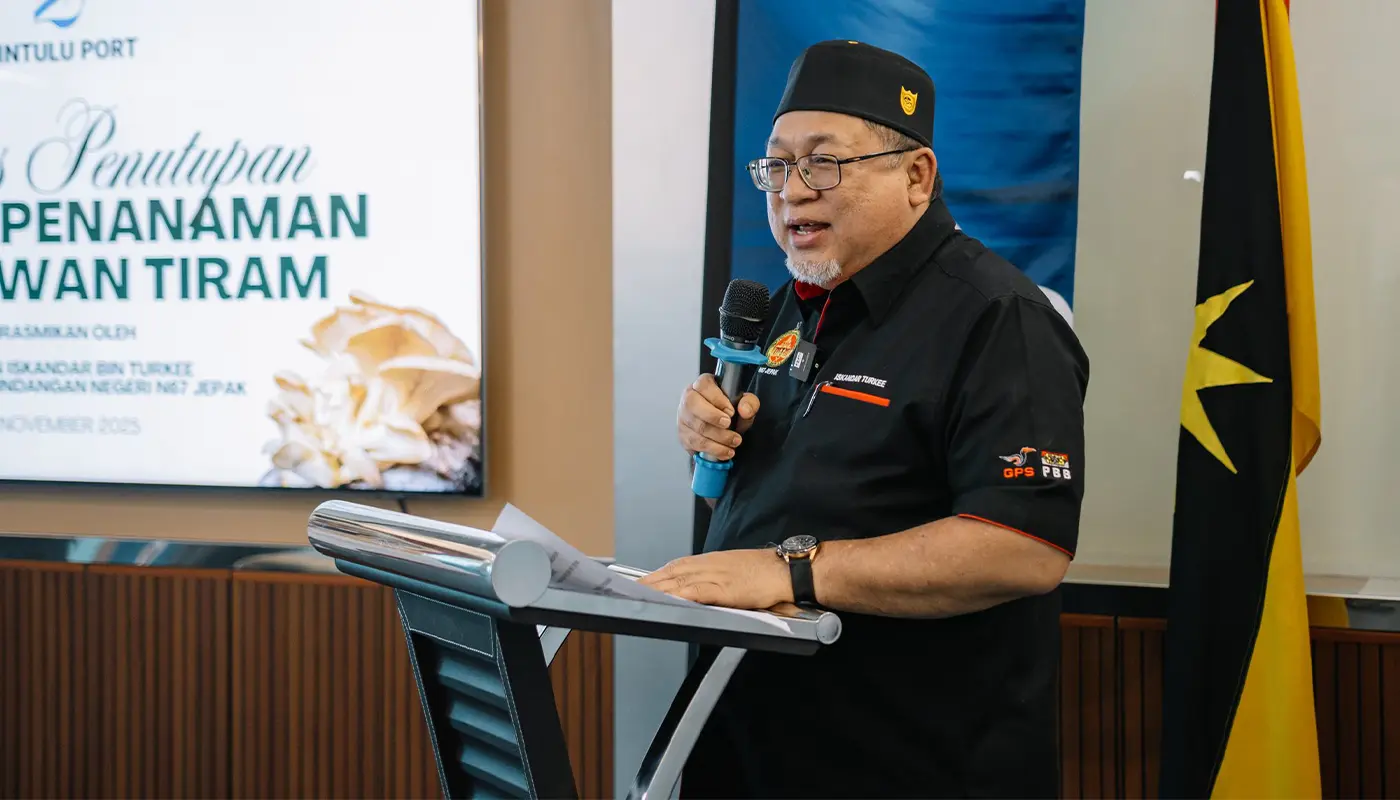BINTULU – Rural communities in Bintulu are set to benefit from a new social entrepreneurship initiative spearheaded by Bintulu Port Holdings Berhad (BPHB), which has introduced an Oyster Mushroom Cultivation Course to promote sustainable income generation.
The programme, held at Wisma Kontena, Bintulu Port, attracted 50 participants from across the district. It focused on practical training in production, care and marketing of oyster mushrooms, positioning the crop as a viable small-scale business opportunity for rural households.
Jepak State Assemblyman (ADUN) Iskandar Turkee, who officiated the closing ceremony, said the initiative was more than just agricultural training.
He described it as a platform to build confidence, independence and entrepreneurial identity within the community.
“We want the Jepak community to not only plant, but to build their own products and identity. With creativity and the right knowledge, oyster mushrooms can be the foundation of a successful small business,” he said.
Iskandar also emphasised the importance of corporate-community collaboration, noting that inclusive development models such as this provide long-term benefits to rural populations.
BPHB’s Group Corporate Services Senior Manager, Maslihah Tioh, assured participants that support would continue beyond the training.
She said the company would provide seed blocks, marketing guidance and product branding assistance to ensure the mushroom projects could become permanent sources of income.
The initiative has been well received by local leaders, who view it as a modern agricultural approach that can strengthen household economies and reduce reliance on traditional income streams.
Also present at the closing ceremony were BPHB Chief Executive Officer (CEO) Dato Ruslan Abdul Ghani, Penghulu Chabi Nanggup, Kampung Baru Laut Chief Sikong Lusek, and Kampung Baru Tengah Chief Awangku Albar Awang Salleh, reflecting strong community support for the programme.
The oyster mushroom project is part of BPHB’s broader corporate social responsibility (CSR) agenda, which aims to empower rural communities through knowledge transfer, entrepreneurship and sustainable practices.
By equipping participants with both technical and business skills, the initiative is expected to create new income streams, stimulate local trade and encourage self-reliance.
With demand for mushrooms growing in both domestic and regional markets, the project has the potential to evolve into a scalable rural enterprise model, offering long-term benefits for Bintulu’s rural population.







